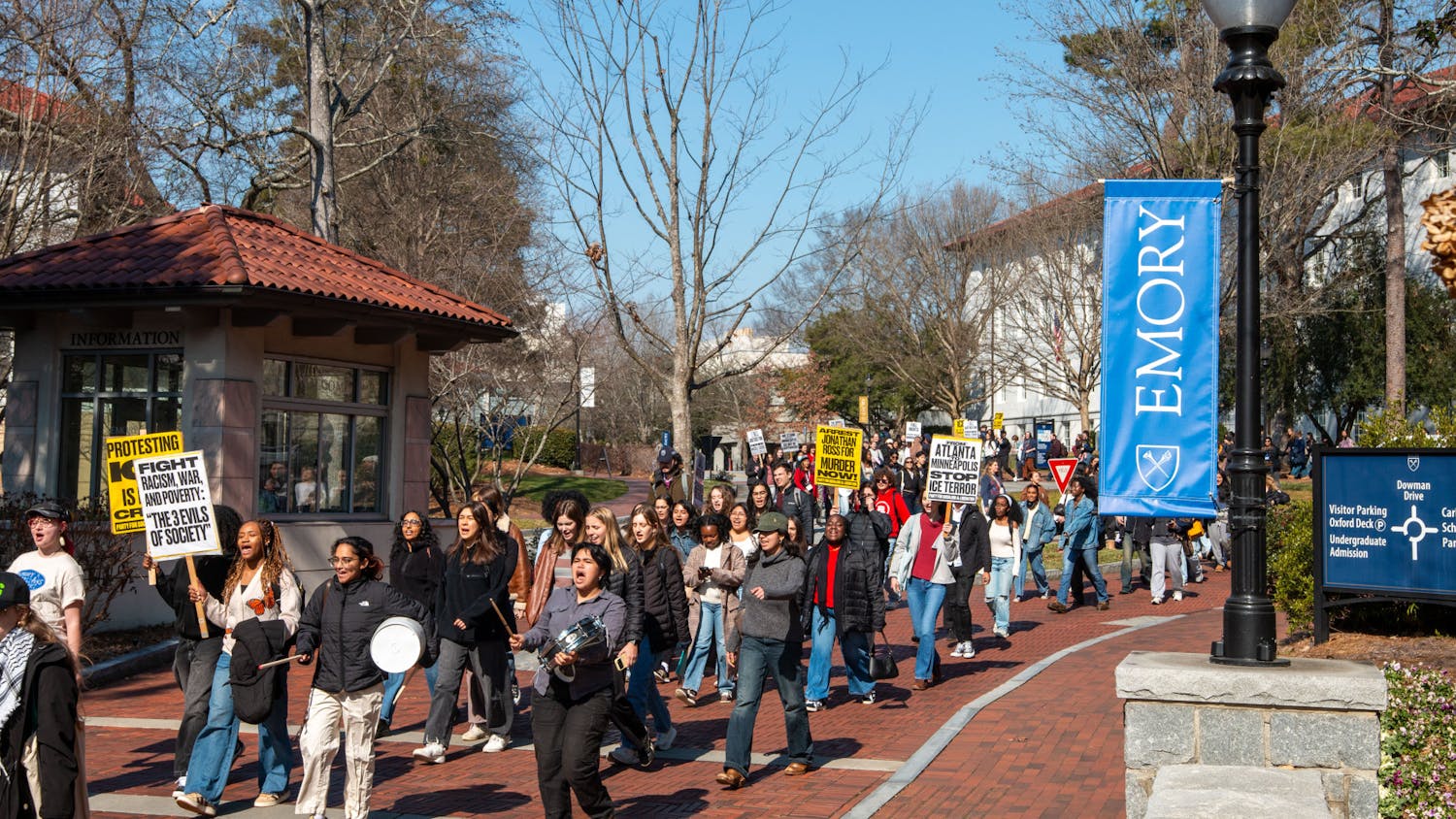Emory University onboarded 19 new faculty members in fall 2022 for the AI.Humanity Initiative. The University plans to hire a total of 60 to 75 new faculty through AI.Humanity within the next three to four years, according to interim Senior Vice Provost for Academic Affairs Lanny Liebeskind, who is one of the co-conveners of the AI.Humanity initiative.
Under the AI.Humanity Initiative, experts in human health, social justice, business, law and the arts and sciences work to facilitate human progress by utilizing the power of artificial intelligence (AI), according to Provost and Executive Vice President for Academic Affairs Ravi Bellamkonda in an Emory News Center article.
The 19 hires include faculty from six Emory schools — Emory College of Arts and Sciences, Emory School of Medicine, Nell Hodgson Woodruff School of Nursing, Emory School of Law, Goizueta Business School and Rollins School of Public Health. The recruits’ expertise range from the computational foundations of AI to its practical use and ethical concerns.
The AI.Humanity recruits’ diverse skill sets correspond with the varied functions of AI technology, Liebeskind wrote in an email to the Wheel.
“[The amount of offers accepted] represents nearly a 60% acceptance rate, which shows the great enthusiasm candidates have had for Emory’s distinctive vision for building an interdisciplinary community of scholars focused on advancing AI to serve humanity,” Liebeskind wrote.

Liebeskind stressed that 10 of the 19 new faculty members identify as women, who are nationally underrepresented in science, technology, engineering and mathematics fields. A 2021 survey from the U.S. Bureau of Labor Statistics found that women make up 26.7% of computer and information systems managers. Additionally, the National Center for Education Statistics reported that women received 25.16% of the degrees and certificates awarded in computer and information sciences in the 2021-22 academic year.
Some of the new hires expressed excitement toward the program. Associate Professor of Mathematics Julianne Chung said the opportunities for collaboration with researchers in medicine, radiology, public health and nursing pushed her to apply.
“There's a large group of faculty working on data science, machine learning, AI, with different applications that are very interesting to me,” Julianne Chung said.
Associate Professor of Mathematics Matthias Chung, who is also a new hire, echoed this sentiment.
“I am working very much on the foundation of these methods to give some good results, but the good results is not good enough, if it is somewhere where it has an impact, and the impact is to humanity,” Matthias Chung said. “That makes me very excited that it is not only from the theoretical side or computational side, but also that it goes a long way, and finding the collaborations and building the community in there can go a long way.”
Goizueta also plans to incorporate a new curriculum on the “application of AI” into their Master of Science in Business Analytics program starting in fall 2023, according to Ramnath Chellappa, the associate dean and academic director of the master of science in business analytics program.
“New organizational processes and new products in the marketing domain are emerging that are all fundamentally very AI driven,” Chellappa said.
AI-based models can also aid in consumer strategy, such as in product recommendation engines, Chellappa added.
“How do I know what product to target for a particular consumer from simple statistical models or predictive models, to more AI-based models that have an ability to observe what the consumer is doing and, therefore, potentially recommend,” Chellappa said.
Chellappa added that there will be “tremendous emphasis” on professors who can research and teach the application of “artificial intelligence, machine learning and data science to business problems.”
The AI.Humanity initiative will continue to add new courses and curricular pathways focused on AI, as well as co-curricular activities such as shorter courses, summer experiences and workshops.
“We also will be offering new opportunities for faculty, staff and students interested in AI to build community and connect with other researchers through networking events, speaker series and seed funding programs,” Liebsekind said.

Clement Lee (he/him) (24Ox, 26B) is majoring in Business with area depths in Information Systems and Operations Management and Business Analytics. He is originally from Strasbourg, France, but now resides in Virginia Beach, Virginia. Outside the Wheel, Clement enjoys watching movies, running long distances and playing golf. You can find him leisurely reading Marcel Proust's, "In Search of Lost Time" on the Quad.









